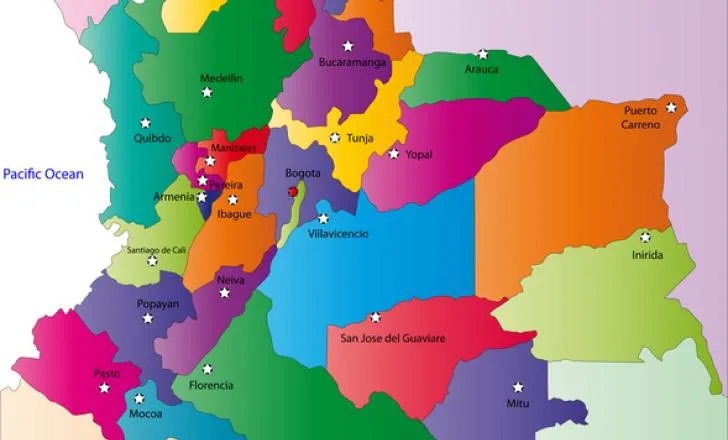Colombia is benefiting from heavy investment in infrastructure that is helping boost the country’s economy. At the same time, tough policies have also reduced crime considerably and helped stabilise economic development. This process of economic growth and overall stabilisation looks set to continue as the Colombian Government has recently unveiled its plans for highway construction over the next 10 years. This infrastructure programme is also tipped to raise demand for surety products owing to government c
December 5, 2013
Read time: 3 mins
Colombia is benefiting from heavy investment in infrastructure that is helping boost the country’s economy. At the same time, tough policies have also reduced crime considerably and helped stabilise economic development. This process of economic growth and overall stabilisation looks set to continue as the Colombian Government has recently unveiled its plans for highway construction over the next 10 years. This infrastructure programme is also tipped to raise demand for surety products owing to government contracts requiring surety insurance to protect public resources.
Higher demand of these types of insurance coverage will help insurers absorb their fixed costs, improving underwriting results and reducing insurers' reliance on investment yields to sustain their profitability, Moody's has claimed in a report. According to Colombian financial regulator Superfinanciera, premiums for surety and construction accomplishment risk constituted 11% of Colombia's total insurance premiums in 2012, with more than 25 companies participating in these insurance lines.
Through the Autopistas para la Prosperidad programme, the Colombian Government plans to spend US$7.4 billion (14 trillion pesos) over the next decade on infrastructure to upgrade and construct more than 8,000km of road and more than 100 tunnels via concessions to private companies.
One of Colombia’s key projects, the construction of La Linea Tunnel, has been hit by various delays. Technical issues and even insurance problems held back progress of the project. But as with Colombia’s other construction works, this is now progressing. When the tunnel opens for traffic it will be 8.6km long and connect Bogotá with Cali on Route 40. Built at an altitude of 2,400m at one end and 2,500m at the other, the project has been technically challenging but will provide a major reduction in journey times, as well as improving safety compared with the existing route.
The city of Cali also looks set to benefit from two projects that will improve transport connections for commuters. The authorities have plans in hand for a 62km ring road around the city that would be constructed under the PPP model and cost an estimated $697 million. Portuguese and Spanish contractors are involved in the proposed ring road project. Federal Government approvals have yet to be awarded however. Other works in Cali include plans to build a number of bridges with the total bill expected to be in the order of $244 million.
Higher demand of these types of insurance coverage will help insurers absorb their fixed costs, improving underwriting results and reducing insurers' reliance on investment yields to sustain their profitability, Moody's has claimed in a report. According to Colombian financial regulator Superfinanciera, premiums for surety and construction accomplishment risk constituted 11% of Colombia's total insurance premiums in 2012, with more than 25 companies participating in these insurance lines.
Through the Autopistas para la Prosperidad programme, the Colombian Government plans to spend US$7.4 billion (14 trillion pesos) over the next decade on infrastructure to upgrade and construct more than 8,000km of road and more than 100 tunnels via concessions to private companies.
One of Colombia’s key projects, the construction of La Linea Tunnel, has been hit by various delays. Technical issues and even insurance problems held back progress of the project. But as with Colombia’s other construction works, this is now progressing. When the tunnel opens for traffic it will be 8.6km long and connect Bogotá with Cali on Route 40. Built at an altitude of 2,400m at one end and 2,500m at the other, the project has been technically challenging but will provide a major reduction in journey times, as well as improving safety compared with the existing route.
The city of Cali also looks set to benefit from two projects that will improve transport connections for commuters. The authorities have plans in hand for a 62km ring road around the city that would be constructed under the PPP model and cost an estimated $697 million. Portuguese and Spanish contractors are involved in the proposed ring road project. Federal Government approvals have yet to be awarded however. Other works in Cali include plans to build a number of bridges with the total bill expected to be in the order of $244 million.







